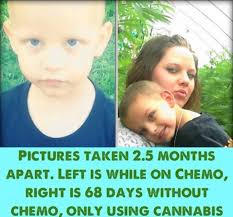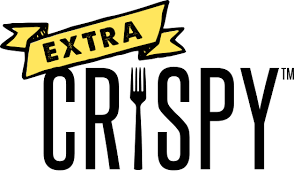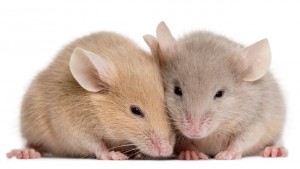
I’ve long wondered what all these connections between cancer and marijuana were. My boyfriend’s grandmother has cancer, and had surgery last week to remove a malignant tumor. She wasn’t feeling well post surgery, and he told me he wanted to make her weed tea. I was curious why, and his reasoning was to make her hungry. I don’t think having the munchies is a great scientific breakthrough for the cancer and weed platform, but it pushed me to ask why marijuana had so many links to cancer.
Although a Huffington Post article assures that marijuana should not be considered by anyone to be a cure for the too-often deadly disease, a Newsweek article from last year calls it the “wonder drug“. And it is important to note that no evidence has shown definite facts that marijuana cures cancer, because there are anecdotes of people who have said it does and they can be powerful. I’ve even seen images as such, that also suggest the same.


It reminds me of the detrimental anecdotes from people like Jenny McCarthy and other parents who claim that vaccines caused their children to get autism. They can be powerful, but it’s like myself saying that I took yoga, and my depression went away. Yoga has not been scientifically proven to cure depression, but I could provide a powerful anecdote to convince people it did and this could lead people away from proper treatment. The other problem with this, especially in regards to cancer, is that there is a multitude of types of cancers that originate different and it is impossible to make such generalized statements. Still, however, cancer and weed could be the perfect combo.
The Newsweek article I referred to talks of the benefits marijuana during chemotherapy. Chemotherapy has shown to be an extremely effective way of flushing out cancer, and has also shown to be a miserable point in any cancer patients’ journey to remission. Common side effects include fatigue, vomiting and diarrhea. The article references a poll done back in 2014 by Wedmd and Medscape where three-quarters of physicians saw marijuana as a viable option.
But where are the well, organized, large sample size, randomized control studies, you ask? I ventured further. My next article took me to National Academic Press. There was a study done comparing THC (the active component in cannabis) and metoclopramide (a drug used against vomiting). First, they eliminated any possible confounding variables such as making sure none of the patients had received chemotherapy before. This was so ensure that vomiting had not become a reflex to the treatment.
Each patient received the same amount of cis-platin (chemo agent) and then we randomly assigned to receive either the THC or the metoclopramide. Alas, a randomized, control trial. The null hypothesis is that THC will not reduce vomitting in chemotherapy patients at a higher rate than metoclopramide, and the alternate hypothesis is that is will. The results were that 73 percent who had the THC omitted at least twice following treatment, compared to the 27 percent who had the other drug. It concluded that while it does reduce vomiting, it does not do so as a significantly effective rate. Thus, it rejects the alternate hypothesis, and supports the null. This could very well be a false negative. Well this is only one study…. yet, the journal says additional studies have been done since that supported the null hypothesis as well. Important note would be that they were described as less rigorous.
This is a topic that has clear bias naturally, and a strong political component that can sway results. While it’s safe to assume that any cure or ease of treatment for cancer would be accepted with open arms, there are many opponents to legalized marijuana under any circumstances. There are also many advocates of legalizing marijuana under all circumstances, and this could lead to two problems. The fist being confirmation bias. The second being the Texas Sharpshooter Problem. They both play into each other. If proponents go looking for any benefits of marijuana during cancer treatment, that leaves a lot of things up in the air, and they might focus in on one whilst ignoring side effects and other data that could harm their end-game.
Obama has just come out saying that marijuana should be treated like alcohol and cigarettes (legal, regulated and taxed). 28 states have already legalized medical marijuana. I, myself, write this with the bias that I agree with Obama, however, I only seek fact here. Bottom line, it is still difficult to say with 100 percent certainty, as is anything, that marijuana is the drug for you should you find yourself facing the terrible disease that is cancer. Marijuana is a drug, and drugs effect every person differently as we each have such unique and complex internal systems- whether used medicinally and recreationally.
Sources:
studies done on benefits of marijuana during chemotherapy tr…
http://www.newsweek.com/2015/07/31/keep-toke-alive-356032.html
http://www.huffingtonpost.com/mary-otte/no-cannabis-is-not-a-cure_b_9292238.html
 However, if you do have ADHD and take medication, please do not freak out. There are also many consequences of leaving ADHD untreated, such as higher rates of depression, and anxiety, and substance dependence, according to Huffington Post. I chose to look into this because it seems to affect someone I love, but I know that Vyvanse and other prescription drugs used to treat ADHD are widely used, and that has to count for something. And as we all know too well from commercials about prescription drugs, they all come with side effects. You have to as Andrew said, examine the risk. The Huffington Post article is really interesting, however, it is Canadian, and mentions things that only pertain to Canada, as far as their drug regulating system.
However, if you do have ADHD and take medication, please do not freak out. There are also many consequences of leaving ADHD untreated, such as higher rates of depression, and anxiety, and substance dependence, according to Huffington Post. I chose to look into this because it seems to affect someone I love, but I know that Vyvanse and other prescription drugs used to treat ADHD are widely used, and that has to count for something. And as we all know too well from commercials about prescription drugs, they all come with side effects. You have to as Andrew said, examine the risk. The Huffington Post article is really interesting, however, it is Canadian, and mentions things that only pertain to Canada, as far as their drug regulating system.











